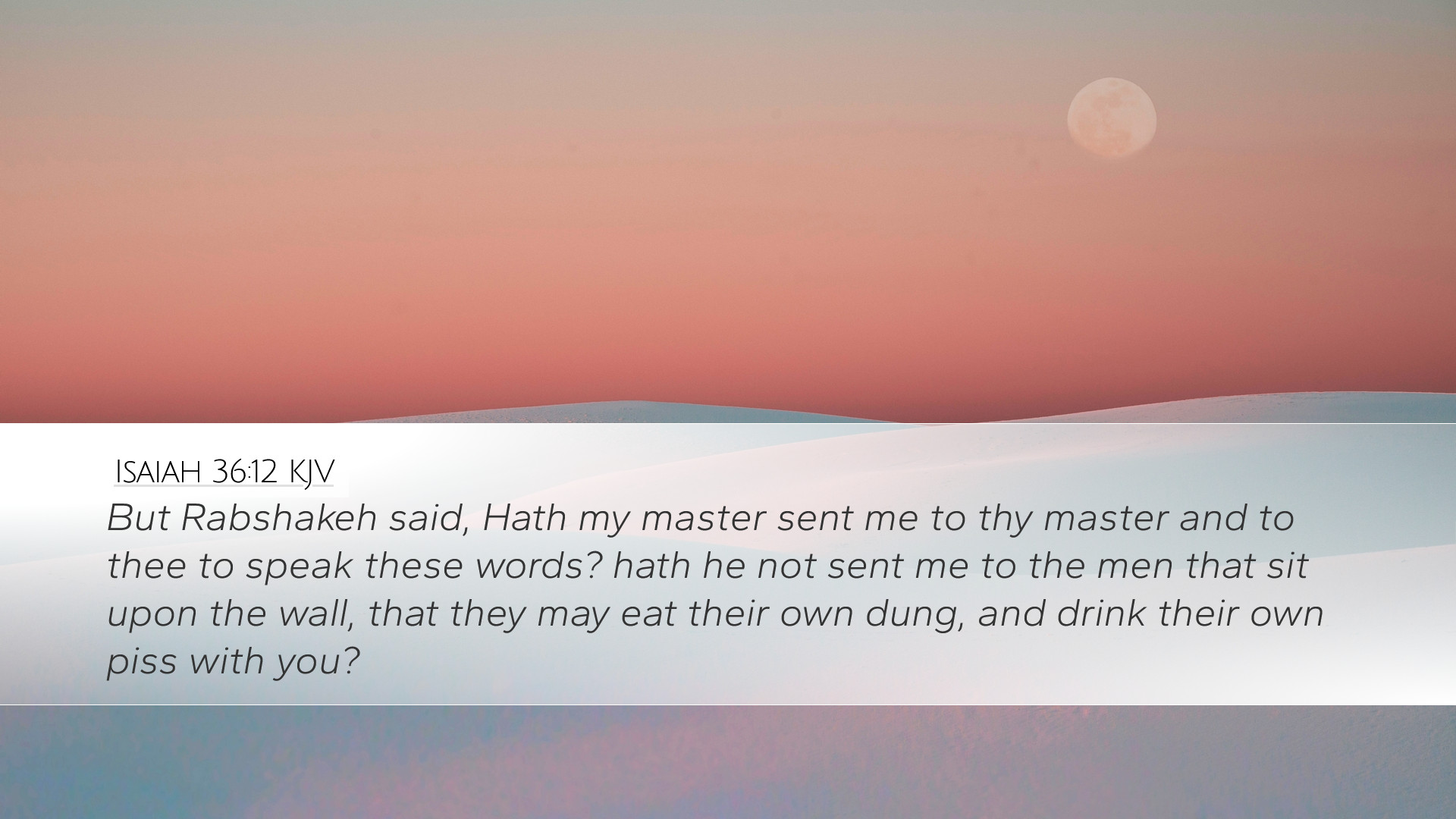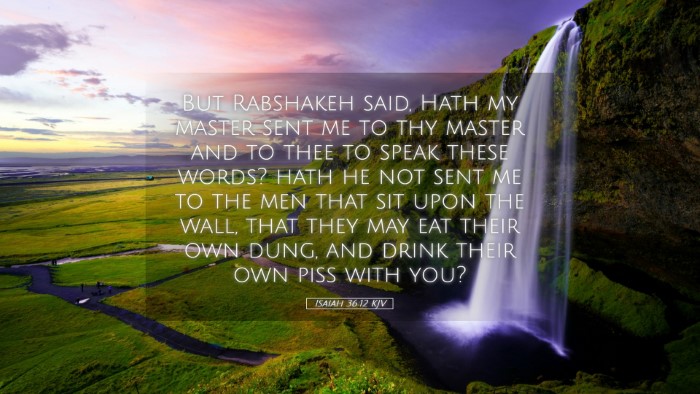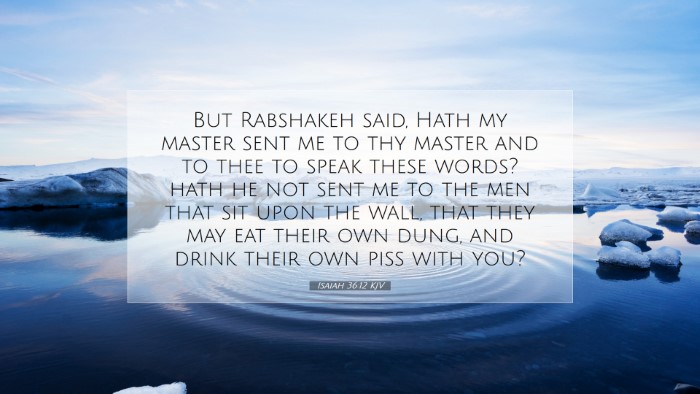Commentary on Isaiah 36:12
Isaiah 36:12 presents a pivotal moment in the narrative of the Assyrian invasion of Judah, offering layers of meaning that resonate through biblical history, theology, and pastoral application. The verse reads:
'But Rabshakeh said, Has my master sent me to your master and to you to speak these words? Has he not sent me to the men who sit on the wall, who are doomed to eat their own excrement and drink their own urine?' (ESV)
Contextual Background
To understand Isaiah 36:12 fully, it is essential to place it in its historical and literary context. This chapter occurs in the period when the Assyrian Empire under King Sennacherib was threatening Jerusalem. The emissary, Rabshakeh, speaks not merely as a diplomat but as a representative of Assyrian might, aiming to instill fear and weaken the resolve of the people of Judah.
Insights from Commentators
Matthew Henry's Commentary
Matthew Henry emphasizes the arrogance and blasphemy exhibited by Rabshakeh. He notes that the words spoken are not only meant to intimidate the people but also to belittle the God of Israel. Henry points out that the Assyrians used fear as a weapon, suggesting that those besieged would eventually resort to desperate measures for survival.
- Fear Tactics: Henry articulates that the purpose of Rabshakeh’s words was to provoke despair and rebellion against God. The imagery of eating their own excrement and drinking urine serves to demonstrate the dire straits that Judah was expected to face.
- Theological Implications: He also reflects on the notion that God’s people often face severe trials, and yet their hope should remain anchored in God’s faithfulness and providence.
Albert Barnes' Notes on the Bible
Albert Barnes provides a more detailed examination of the diplomatic rhetoric employed by Rabshakeh. Barnes notes that Rabshakeh was not merely communicating an Assyrian perspective but was intentionally crafting a psychological strategy aimed at Jerusalem's defense.
- Diplomatic Manipulation: Barnes highlights the distinction Rabshakeh makes between his audience (the wall-sitters) and the leaders of Judah, suggesting a tactical maneuver to isolate the elite from the common people.
- Desperation and Defeat: He further emphasizes the cultural practice of siege warfare, where the desperation of the conquered would lead to dehumanization and degradation, a point Rabshakeh cleverly exploits.
Adam Clarke's Commentary
Adam Clarke approaches the text with linguistic and cultural sensitivity, analyzing the Hebrew nuances in Rabshakeh's proclamation. He sheds light on the phraseology and underlying assumptions about Assyrian power and the invulnerability of their empire.
- Language and Intention: Clarke argues that the choice of words is deliberate, serving both to demean the Jewish people and to assert Assyrian dominance. His commentary invites readers to consider how language can shape perceptions of power.
- The Role of God: Additionally, Clarke indicates the importance of recognizing God’s sovereignty even in times of distress. The threats posed by Rabshakeh can be seen as provocations that challenge the faith of mockery, pushing believers to reaffirm their trust in God.
The Pastoral Implications
For pastors, theologians, and students of the Bible, Isaiah 36:12 is a reminder of the presence of trials and voices of discouragement in the life of faith. This verse and its surrounding context can be viewed as a reflection of spiritual warfare, where the enemy uses fear and mockery to chip away at the foundations of faith.
- Understanding Trials: This text teaches believers that they may face not only physical hardships but also existential threats to their faith. Just as Rabshakeh aimed to demoralize the people of God, so too does the enemy seek to diminish trust in God’s promises.
- Reaffirming Faith: The call for pastors is clear: to encourage congregations to stand strong, remembering their identity as God’s people and the assurance that He remains sovereign over all circumstances—even in the most daunting of times.
- Courage to Confront Fear: The imagery of desperation used by Rabshakeh evokes deep reflections on the human condition. Foreshadowing God’s ultimate deliverance, this verse encourages believers to maintain courage amidst adversity and to rely on the truth of God’s Word in their response to fear.
Conclusion
Isaiah 36:12 serves as a powerful reminder of the challenges faced by God’s people in a world that often mocks and seeks to undermine faith. The insights drawn from the commentaries by Matthew Henry, Albert Barnes, and Adam Clarke illuminate the text’s layers of meaning while reinforcing the theological truths that underpin it. For pastors, students, and theologians, this verse is an invitation to explore the complexities of faith, resilience, and the power of God's presence in distress.


